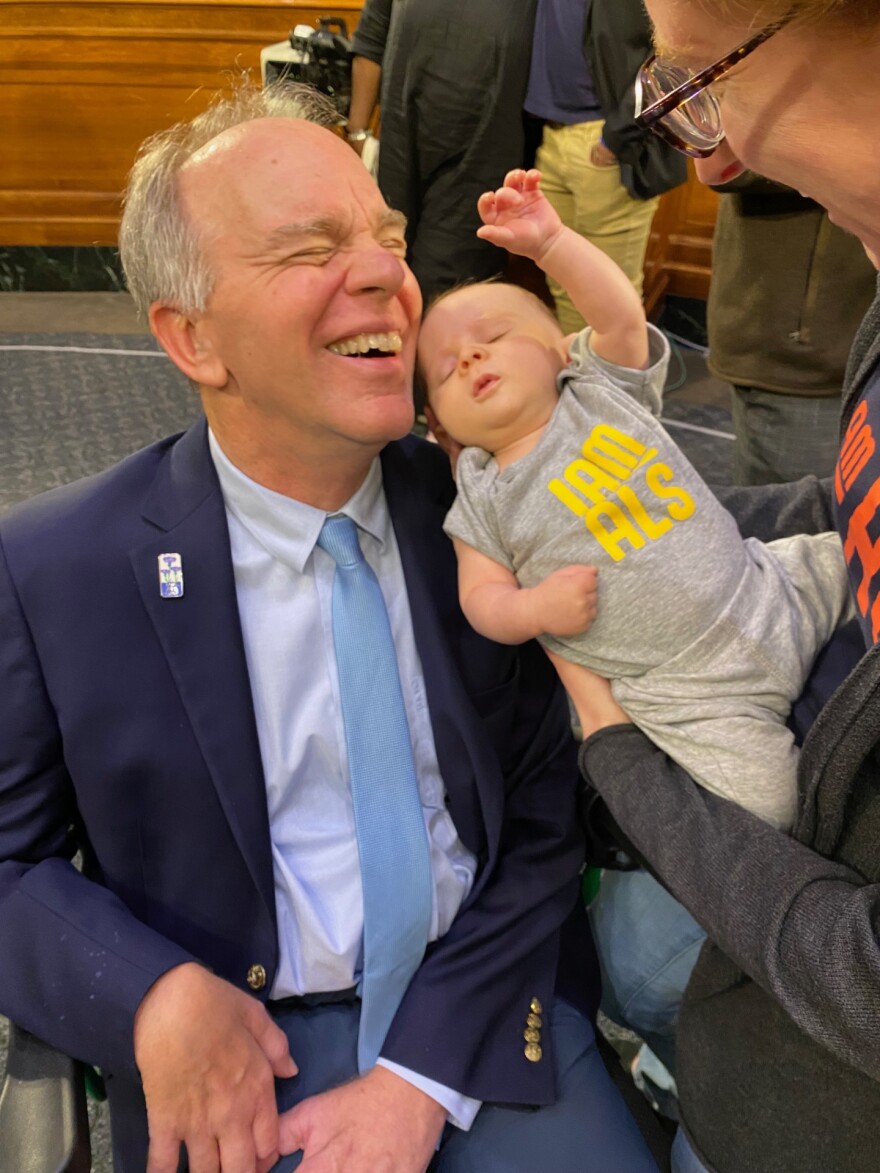Jim Plews-Ogan and his wife Peggy were both doctors and they knew very well what a diagnosis of amyotrophic lateral sclerosis would mean.
“It is a relentless disease that robs you of your ability to move and to swallow and to talk and eventually to breathe, so you become – essentially – a prisoner in your body,” Peggy explains.

And people diagnosed with the disease live only 3 to 5 years more on average.
“It hits hard and fast,” she says.
That might help to explain why, for most of the 20th century, the condition got little attention and funding for research. Patients were not strong enough or around long enough to lobby for a cure. Then a famous athlete – Lou Gehrig – was diagnosed, and more recently, advocates came up with a crazy idea – getting people to take an ice bath for charity.
“A lot of people didn’t know why they were doing the ice bucket challenge,” she recalls, “but they did it, and it did jump start some of the research that we’re seeing now bearing fruit.”
To ensure that people get promising new treatments, even before drugs are FDA-approved, Peggy and Jim Plews-Ogan went to Washington where he testified before Congress.
“There are lots of promising therapies coming down the pipeline, and unfortunately ALS is a disease of urgency. If you only have – at most – five years, time is of the essence. For people to get early access to therapies they can’t wait.”
Jim was known and loved for making house calls and helping families with kids needing complex care at home, so his retirement sparked calls for a party to celebrate this beloved pediatrician. Jim preferred to use the occasion to raise money for a non-profit that could finance research and patient support. He and Peggy called it the Hummingbird Fund.
“Hummingbirds are tiny, but they also punch above their weight,” Peggy says. “They can do amazing things – fly in all directions, and they can hover, and they are high energy, and that’s kind of what we wanted this fund to be.”
It’s helped ensure families have ramps so patients can access their homes in a wheelchair, and it’s now highlighting some positive things that may come from a diagnosis of ALS. Peggy says, for example, that losing the ability to speak or use their hands has not kept some people from taking part in conversations on Zoom.
“There is a technology called eye-gaze where your eyes act like a mouse on a computer. Well these people are using eye-gaze to type into the chat and stay up with the conversation, and they were funny, and they were empowered.”
She’s also seen how facing a dire medical diagnosis makes some people more compassionate. Their sense of empathy and humor grows, even as their physical abilities decline. To highlight those changes, Jim developed a questionnaire that can be used to assess patients’ positive progress – the Turbo-Charged Living Scale – which is at the center of pilot programs at the University of Virginia and Duke.
“To help people reflect on the things they actually can do, and maybe are even growing in.”
And as the federal government cuts money for research, Peggy Plews-Ogan says the Hummingbird Fund will also help to support scientists as they search for treatments and a cure not only for ALS but for other neurodegenerative diseases like Alzheimer’s and Parkinson’s.
This report, provided by Virginia Public Radio, was made possible with support from the Virginia Education Association.

